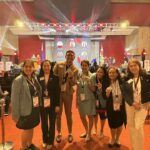Why Naturopathy Could Be the Key to Healing: Lessons from Dr. Elizabeth Micaller
When we talk about health today, most people immediately think of hospitals, doctors in white coats, and a cabinet full of pills. But what if there’s another way — a way that doesn’t just mask symptoms, but actually helps your body heal itself?
This is what naturopathy is all about — and it’s something I learned more about through a fascinating interview on Philippines Uncut (2014) with naturopathic doctor and educator Dr. Elizabeth Micaller, alongside organic entrepreneur Angelo Sonco of Sugarleaf Organic Market and Café.
Here are some key takeaways from that conversation about how naturopathy — and healthy, natural living — can transform our lives.
Healing the Whole Person, Not Just the Symptoms
Dr. Micaller describes naturopathy as the original way of healing — a method that sees you as a whole person: body, mind, and spirit.
“We look at you as a whole being. We look at the cause — not a Band-Aid thing.”
Instead of just treating symptoms (like giving painkillers for a headache), naturopathy asks: why is your body hurting? what’s out of balance?
According to Dr. Micaller, the main root of illness is what she calls toxemia — a state where your body becomes overloaded with toxins or deficient in vital nutrients and energy. Too much stress, poor diet, environmental pollution, and even negative emotions all contribute.
Where Western Medicine Fits In
Does this mean naturopathy rejects modern medicine? Absolutely not.
Dr. Micaller is quick to point out that hospitals and doctors are essential when it comes to emergencies — like trauma, accidents, or heart attacks. But for long-term health and healing, she believes the least harmful, most natural methods should come first.
In her words:
“You need the allopathic Western doctors when you have an emergency. But for healing, you must use what is least harmful.”
Food Is Medicine
One of the most eye-opening parts of the interview was when Dr. Micaller explained how much of our sickness today comes from what (and how) we eat.
Years ago, she became vegetarian overnight for spiritual and health reasons. But over time, she discovered that eating well doesn’t have to mean being rigid or extreme — it’s about eating mindfully, avoiding excess, and respecting your body’s needs.
“You bless your food and change its energy so it becomes perfect for your body.”
She also reminded viewers that what we eat today is very different from our grandparents’ diets — now full of sugar, chemicals, processed oils, and fast food — and it shows in the rising rates of cancer, diabetes, and other chronic diseases.
The Philippine Institute of Naturopathic Sciences (PINS)
Dr. Micaller also shared her work in teaching and training others through the Philippine Institute of Naturopathic Sciences (PINS), which she founded. PINS is the first institution in the Philippines accredited to train and certify naturopaths — spreading awareness and equipping more practitioners with natural healing knowledge.
You can learn more about PINS and their programs through their website:
👉 Philippine Institute of Naturopathic Sciences
And you can also check out videos, talks, and more about their work on their YouTube channel:
👉 PINS on YouTube
Both platforms are excellent resources if you’re curious about naturopathy or even considering training in it yourself.
Making Healthy Food Accessible
On the show’s second half, Angelo Sonco shared his journey of creating Sugarleaf Organic Market and Café, a one-stop shop and restaurant offering organic meals and ingredients.
He acknowledged that many people think healthy eating is expensive, but he sees it as an investment:
“It’s all a matter of perspective. You don’t eat a kilo of lettuce every day. You just need to make better choices.”
By sourcing from local organic farmers and educating customers, Sonco’s goal is to make natural food more accessible — and to help people realize that healthy doesn’t have to mean boring or unaffordable.
Challenges — and Hope
One big challenge in promoting naturopathy and organic living in the Philippines is accessibility. Not everyone has the time or money to visit an organic store or grow their own food.
But both guests agreed: change starts with awareness. The more people demand clean, natural food and take charge of their health, the more affordable and widespread these choices will become.
Why Naturopathy Matters Today
This conversation left me inspired — and a little humbled. At a time when chronic diseases are on the rise and people feel disconnected from their own bodies, naturopathy offers a simple but powerful reminder:
Your body knows how to heal — if you let it.
It starts with the basics: eat real food, move, rest, manage stress, and listen to your body.
Or as Dr. Micaller beautifully put it:
“It is the only way to heal.”
If you’re interested in learning more about naturopathy, visiting a naturopath, or even becoming one yourself, check out the resources from the Philippine Institute of Naturopathic Sciences:
🌿 Website
🌿 YouTube Channel
Have you tried naturopathic approaches to health? Do you eat organic? Share your thoughts and experiences in the comments below — I’d love to hear them!


